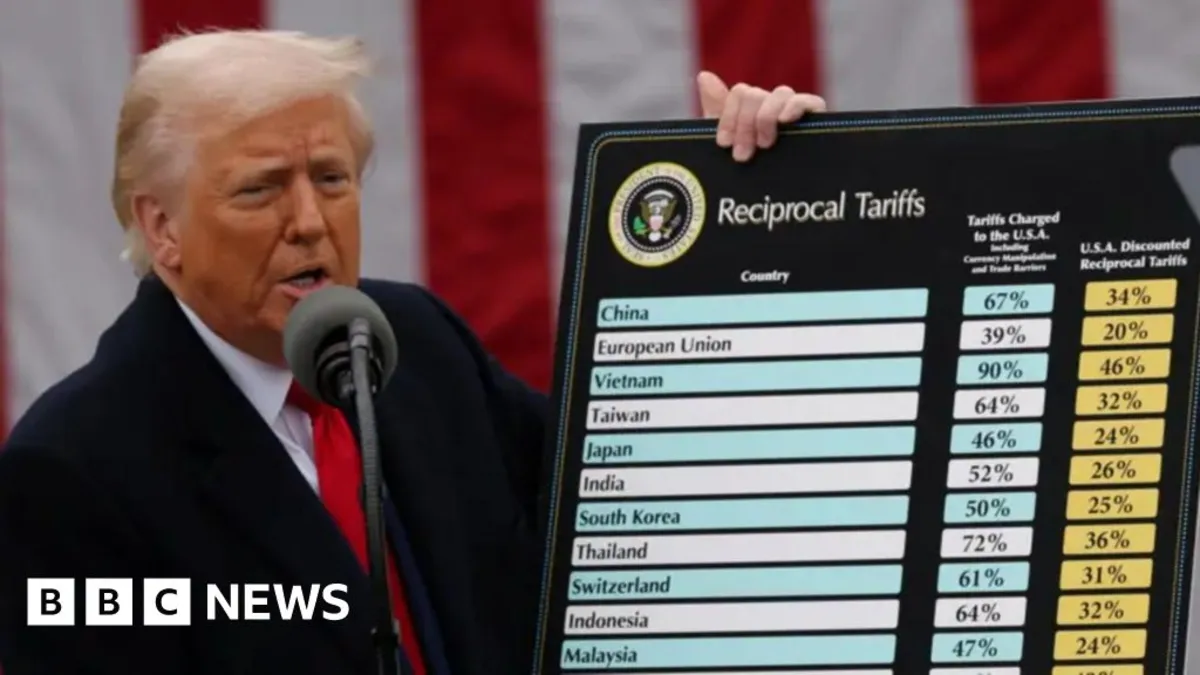
The Trump administration remains staunch in its defense of sweeping tariffs on imports, vowing to continue its course despite growing market turmoil and increasing calls to avert a potential trade war. In recent television interviews, Treasury Secretary Scott Bessent attempted to minimize the impact of recent stock market declines, while Commerce Secretary Howard Lutnick affirmed that reciprocal tariffs are forthcoming.
Bessent asserted that there is no reason to anticipate a recession stemming from the current market fluctuations, describing the situation as merely an "adjustment process." In contrast, Lutnick emphasized that the new baseline 10% tariff on all imports, which took effect recently, will remain firmly in place for the foreseeable future. He noted that the anticipated higher tariffs on approximately 60 countries, deemed the worst offenders, are scheduled to commence on April 9.
As a reflection of ongoing market instability, all three major US stock indexes experienced a significant drop of over 5% on Friday, marking the worst week for the stock market since 2020. The S&P 500 alone fell by nearly 6%. In further signs of international market fragility, Saudi Arabia's stock exchange reported a nearly 7% decline on Sunday, showcasing its most substantial daily loss since the onset of the pandemic.
In response to the upheaval, Lutnick reiterated in an interview with CBS News that the tariffs announced by Trump are not just temporary measures. He stated, "Trump announced it and he wasn't kidding," confirming that the steeper reciprocal tariffs are still on track and will be implemented as planned.
Amid the tariff discussions, Kevin Hassett, another senior economic adviser to Trump, revealed that more than 50 countries have reached out to the administration seeking to negotiate better terms. He did not provide specifics on which countries had made contact. However, countries like Indonesia and Taiwan have declared over the weekend that they will not retaliate against the US's tariffs, which include a 32% levy on their exports.
Conversely, China has announced a 34% tariff on all US imports, effective April 10, signaling a potential escalation in the trade tensions. UK Prime Minister Sir Keir Starmer warned that the global economic landscape has shifted dramatically in light of these developments, emphasizing the UK's commitment to negotiating an economic deal that mitigates some of the tariffs imposed by the US.
As tensions rise, Israeli Prime Minister Benjamin Netanyahu is set to meet with Trump on Monday for trade discussions in Washington, D.C. Netanyahu highlighted the significance of this meeting as the first international engagement with Trump following the announcement of the new tariffs, underscoring the strong personal and diplomatic ties between the two nations.
In conclusion, as the Trump administration pushes forward with its tariff strategy, the global community watches closely. The stakes are high, and the potential for a trade war looms large, with countries striving to navigate the changing economic landscape while seeking to protect their interests.